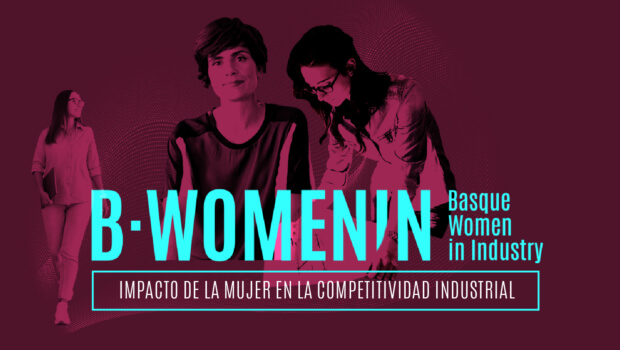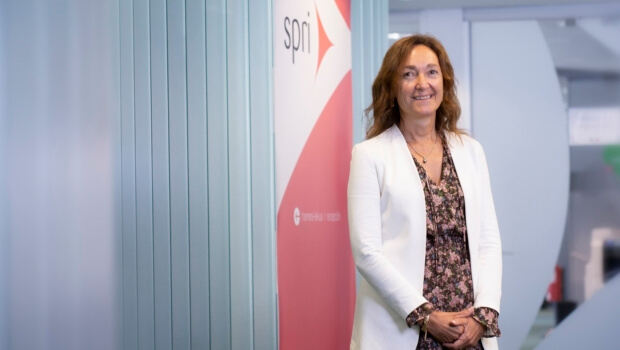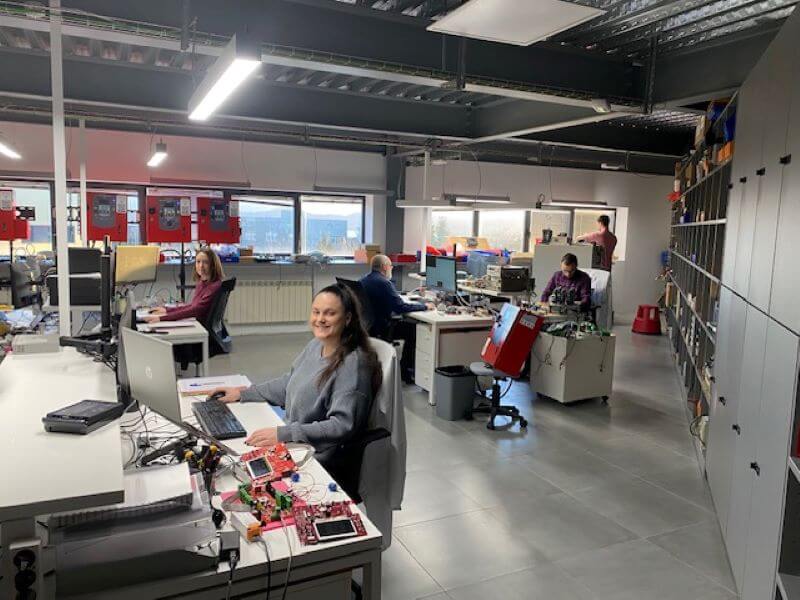SVE stands out for the gender equality in its top management
SVE Corp, based in the Álava Technology Park, is a global leader in the production controllers for power generators and motor pumps, and stands out for its gender equality plans. There is a similar percentage of women and men (40% and 60% respectively) in its top management, and 35% of its employees are female; that figure is higher than the average for the nearly 500 companies participating in the Impact of Women on Industrial Competitiveness study conducted by the SPRI Group in 2023, which stood at 21.74%.
Founded in 1972, SVE is noted for its firm commitment to innovation and allocates at least 15% of its annual turnover to R&D&I. This ongoing investment in research and development keeps it at the cutting edge of technology, offering efficiency and high-quality solutions. The company considers itself to be a group of people committed to general wellbeing, caring the environment and parity.
Álvaro Cristóbal, who has been at the head of SVE for 14 years, put the good gender equality results down to a sound business culture where quality is a fundamental value. ‘We are not surprised at being well positioned, as our conviction and inclusive culture guide us on this path’.
The practical level footing of the management posts and on the Board of Directors is due to a strong belief in inclusive values, fair recruitment policies, professional development programmes for women, and a strong push for initiatives to foster the leadership of women.
Despite what has been accomplished, SVE acknowledges challenges on the path towards achieving parity at management level, such as structural and cultural barriers that persist in certain spaces, along with some women’s reluctance to take on leadership roles, influenced by settings that are traditionally male and self-imposed expectations.
The company is active in initiatives to foster technical professions among women and has seen a greater presence of women with technical training. Cristóbal also stressed the SVE working conditions as ‘healthy, respectful and with shared responsibility’, with an emphasis on work-life balance and staff retention.
However, this increase in recruits is not seen in vocational education and training, where the students continue to be mainly male. This represents a challenge to achieve gender parity in industrial production plants such as that of SVE. On the other hand, the gender balance in the R&D Department is noteworthy, where women are noted for a very high level of professionalism, zeal for work and commitment to the company, as Álvaro Cristóbal acknowledged.
Work-life balance
In the same way as with women being under-represented in vocational education and training, SVE also recognise the need to foster social and administrative vocations among men to balance the greater female presence in the marketing and administration departments. ‘In those departments, the supply of well-qualified women is higher than of men’, Cristóbal pointed out.
Faithful to its people-oriented business culture and the interdependence of the human team, the company understands the connection between work and domestic environments. Policies have therefore been implemented to facilitate the work-life balance, such as ending the working day at 5.30 p.m., freedom in scheduling holiday time, organising tasks to prevent work-related fatigue, care leave and reduced working time for training or family-related purposes, and respecting personal needs. By prioritising the overall wellbeing of their employees, the company humanises its working environment and drives its competitiveness and success.
In keeping with this philosophy of respect and collaboration, the company has implemented different internal equality policies that bolster its commitment to an inclusive work environment. The policies include the use of non-sexist language and the harassment protocol. These measures underscore the importance of a culture fostering respect and equality in internal and external interactions alike.
The SVE management team believes that these measures are fundamental to create an environment where the talent and ability of all employees can prosper, thus contributing to the company’s competitiveness and global success. It understands that competitiveness is built on the basis of respect, inclusion and equality, principles that drives success and ongoing development of the organisation.
Related news

Engranajes Juaristi stands out for the gender equality in its top management
The company in Zarautz is one of the participants in a project to pinpoint best practices in gender equality led by the SPRI Group

VIVEbiotech Secures Growth Investment from Ampersand Capital Partners to Expand Lentiviral Vector Development and Manufacturing Capabilities
Support the execution of a robust pipeline of customer projects for innovators developing groundbreaking in vivo and ex vivo cell and gene therapies.

Companies with greater gender equality perform better in terms of innovation and are more competitive
The study of the SPRI initiative "Women in Industry" shows that gender equality has an impact on the improvement of company results.

SPRI Group will propose at the World Manufacturing Forum transformative actions to enhance the presence of women in the manufacturing industry
Cristina Oyón has led the international group of experts that has drafted the report that will be disclosed on October 20th and 21st at the World Manufacturing Forum, which can be followed online for free upon registration

